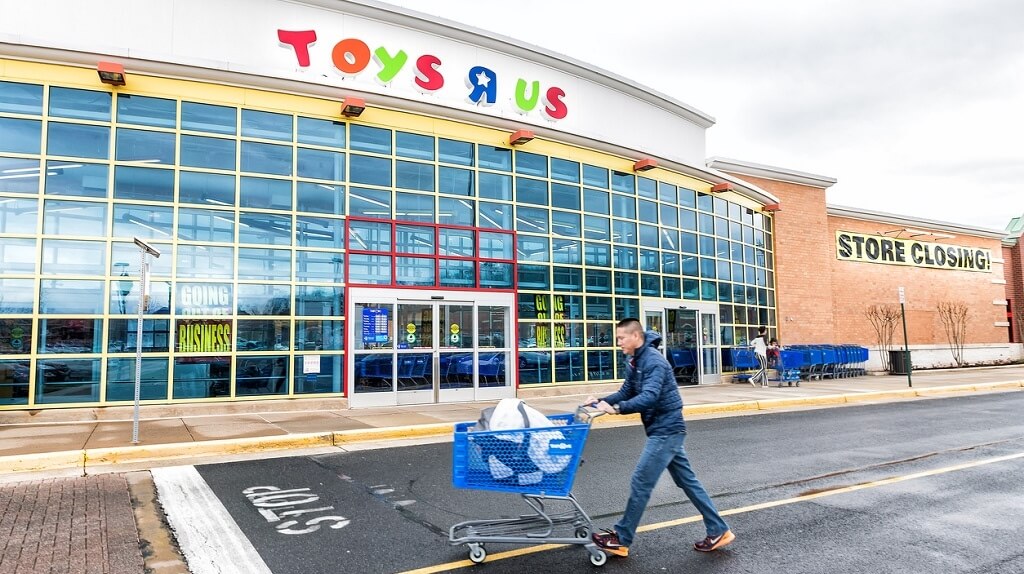How Independent Local Retailers Can Beat The Online Giants
Small high street shops must focus on customers to provide a service online retailers can't match.

As we’ve seen with the unfortunate news regarding Toys R Us, New Look, Moss Bros. and CarpetRight, it seems like there isn’t a month that goes by without reports of another retailer under pressure as shoppers continue to turn from visiting shops to visiting websites.
In recent months and years we’ve seen the bricks and mortar retail sector struggling more and more as companies are forced into changing the way they operate. Some have failed to make these changes in time, others have lost their way in doing so, but others have embraced change with open arms.
While many of the headline grabbing stories focus on the large national retailers, the rise of online shopping and the fall of the large stores presents new opportunities for local and independent traders.
While the ever-growing online retail sector has brought opportunities for some, there’s no doubt that some of the larger retailers have been slow to respond to changing customer habits and expectations. Others have found it impossible.
When Toys R Us was founded, it fulfilled a niche as a supermarket-style warehouse for affordable toys where the focus was on stock and accessibility rather than service. As online shopping gained popularity, that model proved increasing obsolete as online competitors were able to beat the former giant on both fronts.
However many products they had in stock, Toys R Us would always have to inflate their prices to cover the costs of rent, business rates, heating, lighting, staff and security which online retailers don’t require.
Despite their best efforts to modernise, Toys R Us was unable to shift its focus and adapt its business model enough to succeed and it’s now been forced to close its stores across the UK and the US. Sadly, it seems that this won’t be the only chain that will be facing liquidation this year as more national chains look set to follow in the same pattern as the American toy giant.
In recent years, online retailers have been outstripping some high street rivals when it comes to customer service: They’ve made great strides through providing personalised experiences, customer support lines and forums, loyalty schemes, targeted discounts and free return delivery, But compared to the customer service a shop can offer, their options are limited.
If Toys R Us had focussed on emulating the best customer care practices of their online rivals, if the company had honed the skills of its customer advisors and had updated the look and feel of its stores, it might still be able to compete today.
Sadly, the Toys R Us stores that are closing their doors look and feel just the same as they did when they opened in an era when online retail wasn’t a threat.
By and large, if a shopper knows what they want to buy and don’t need help, they’ll look for the cheapest and easiest place they can buy it from, which in most cases is the internet. Conversely, if they aren’t sure what they want or if they want advice or to see a product in person, then a shop should be able to help them more than an online retailer can.
I realise that this is a simplification that overlooks certain sectors, but generally speaking, shops have to shift their focus to the customers who are more likely to need their services and they should stop trying to compete for the customers who are well served by online retail.
Simply being on the high street or even an out of town retail park is no longer seen as ‘convenient’ when shoppers can buy the same products for less online. After all, if you know what you want, why would you travel to a shop that has a smaller range of products for higher prices and no extra level of service than what’s available online?
The secret is in offering great customer service that online retailers can’t match. Retailers have to forge closer relationships with their customers so they can understand and deliver what they want and go beyond their expectations.
Staff that know the products and understand their customers and stores that are laid out so that customers can see and try out products can help information-seeking customers far more than an online retailer ever can for most products. Retailers need to realise this advantage they have and make sure that they capitalise on it.
While shifting toward a focus on customer service has been difficult for some larger retailers, smaller, local traders should be much more capable of honing their customer service and changing their focus.
While larger retailers do face difficulties in adapting to change, independent retailers have far more opportunities to offer great customer service than their larger rivals. Like an online retailer, they can also engage with customers on social media, send them discounts by email and let them know when they have news to share, but they can do so much more beyond this.
Local traders can do things that large national players can’t do: They could partner with non-competing neighbours to stage events or sales, make their shops a nice place to be, get involved with community events, or run open evening events to give customers the chance to visit after hours.
Partnering with local schools and community groups might also get retailers closer to prospective customers, and, crucially, they can have in-store staff who can genuinely help customers.
If you work in retail, it’s easy to feel like you can’t compete with a rival that can undercut you in price and have a wider range of stock. If price is the battleground, it’s a fight that chain stores and local traders can’t win. But you can turn the tables and beat the online giants by offering a better customer service than they could ever offer.
Simon Shaw is a director at Duncan & Toplis, Chartered Accountants and Business Advisers.
Thanks for signing up to Minutehack alerts.
Brilliant editorials heading your way soon.
Okay, Thanks!


